Rathipriya Viswanathan: International Club, Alzheimer’s Research, and The Super Resolution Microscope
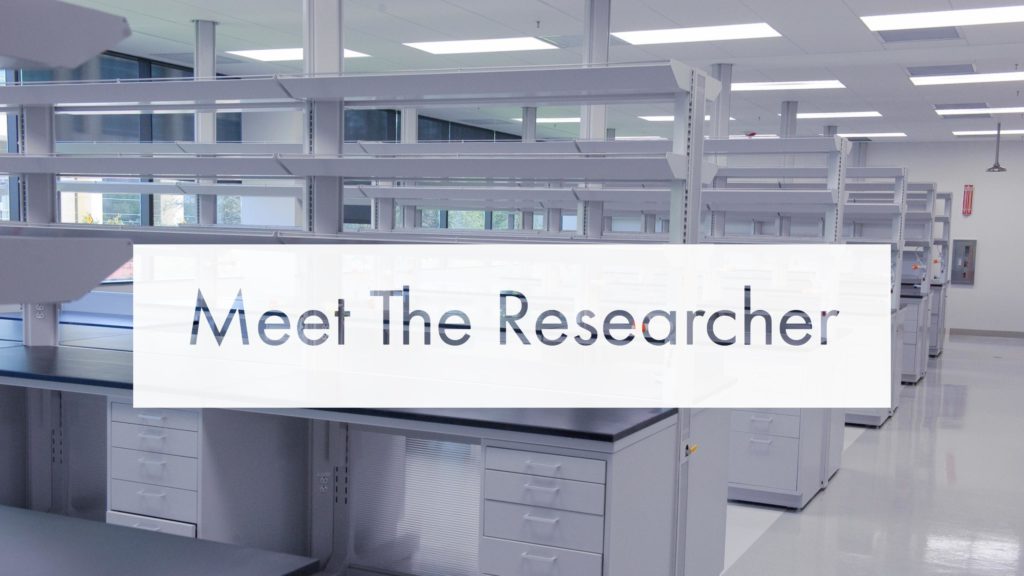
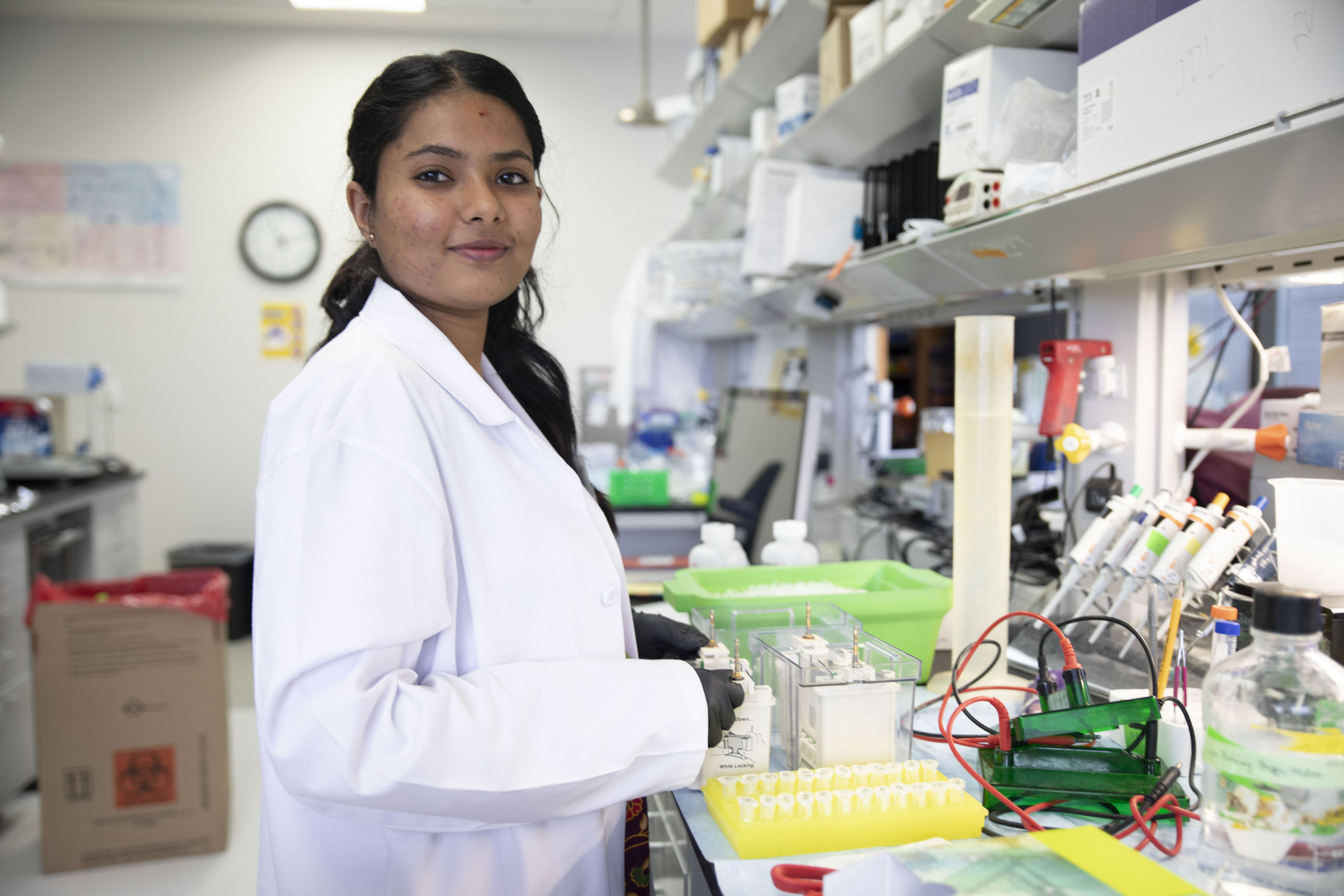 Rathipriya Viswanathan is currently a Ph.D. student in the Integrated Biomedical Sciences program in the Neuroscience discipline.
Rathipriya Viswanathan is currently a Ph.D. student in the Integrated Biomedical Sciences program in the Neuroscience discipline.
“I was attracted to UT Health San Antonio because of the student friendly atmosphere. The other places I applied to seemed more rigid and not very flexible. I also liked that it is an umbrella program so I can work with different professors in different departments,” she said.
She didn’t always know that she wanted to do a Ph.D. It was a pivotal experience that led her to this big decision. During her undergrad, Viswanathan was one of 15 students selected from SRM University, India to go to Harvard-MIT Health Science division for a semester abroad.
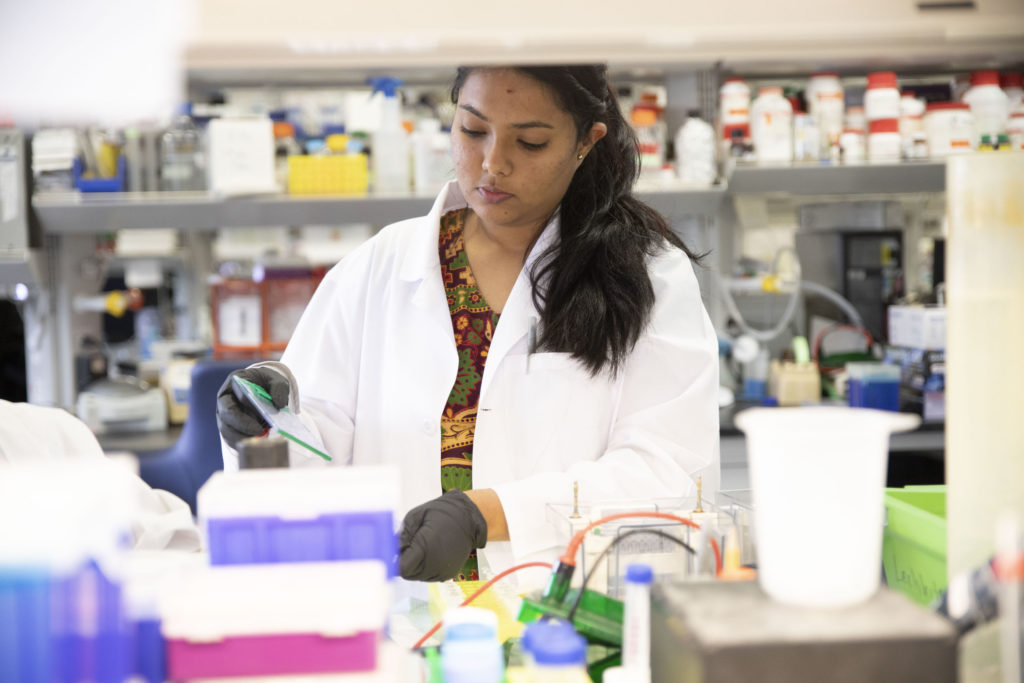
“I had applied to work in either a cancer lab or a neuroscience lab and I got into a Neuroscience lab. It was interesting to be in an Alzheimer’s lab which was completely new to me,” she said. “I learned everything about cell culture and important molecular biology techniques and basically how to be in a lab in those six months. It was after that, that I knew I wanted to do research.,” she said.
After finishing her undergraduate thesis, she decided to do a Master’s in Neuroscience at the State University of Buffalo where she was looking at biological changes in the Nucleus accumbens if relapse occurs during withdrawal period after prolonged drug use. As a master’s student, she visited UT Health San Antonio during the annual Behavior, Biology, and Chemistry conference to present a poster and had a chance to meet faculty members.
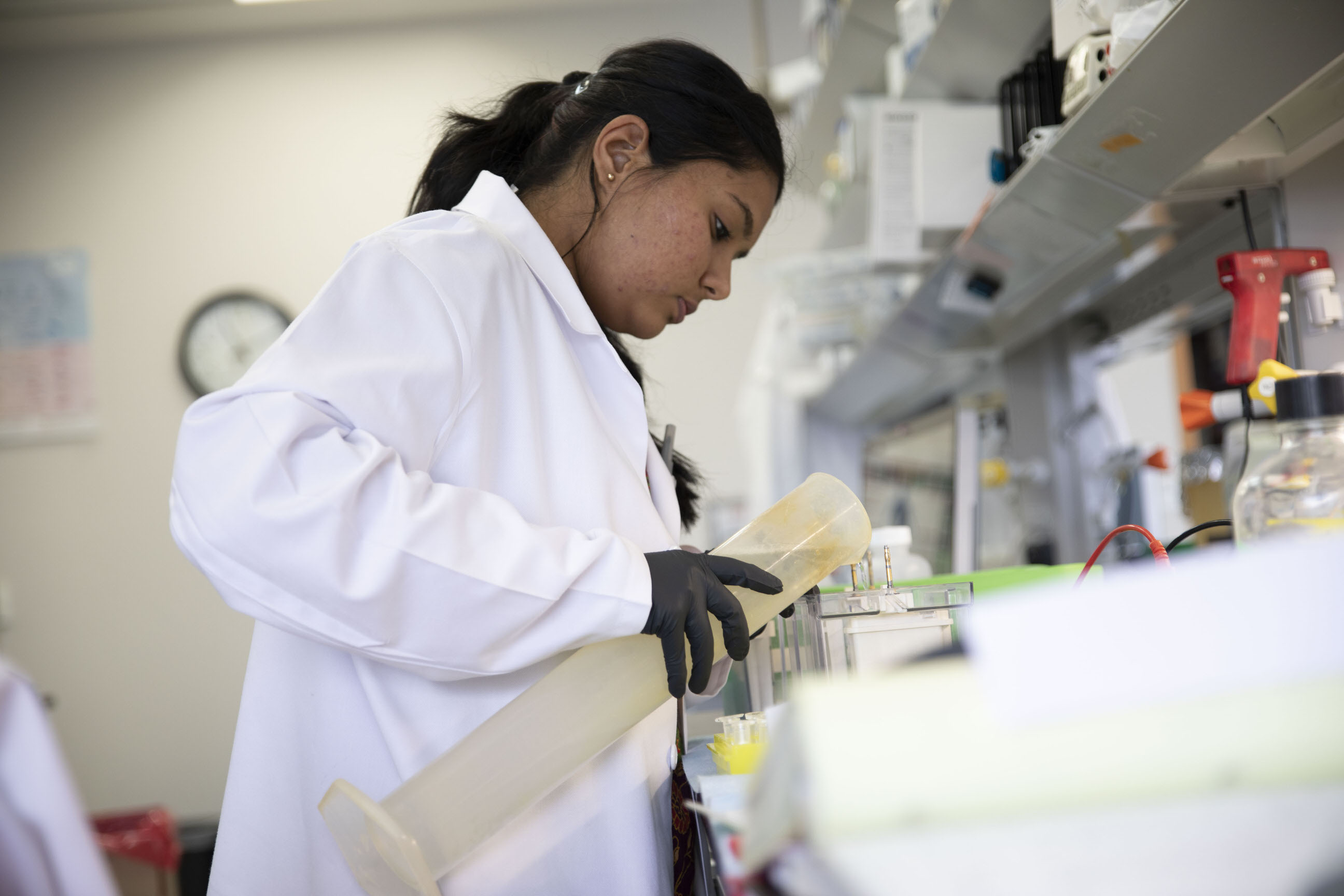
Viswanathan is currently in the lab of Dr. James Lechleiter. She said that one of the reasons that she was drawn to the lab was because of the ability to learn super resolution microscopy.
“It’s a rare skill to have so I wanted to learn it,” she said. “He also has all the good qualities I was looking for in a mentor. He’s patient, flexible and doesn’t micromanage. He lets everyone find their groove and go at our own pace.”
Her research is looking at PERK which is an endoplasmic reticulum stress sensor. She explained that PERK has been linked to neurodegeneration in both a positive and negative way.
“The exact mechanism of PERK activation is poorly understood, so I’m looking at the mechanisms behind how the protein is activated and how the signaling changes as well under different physiological conditions,” she explained.
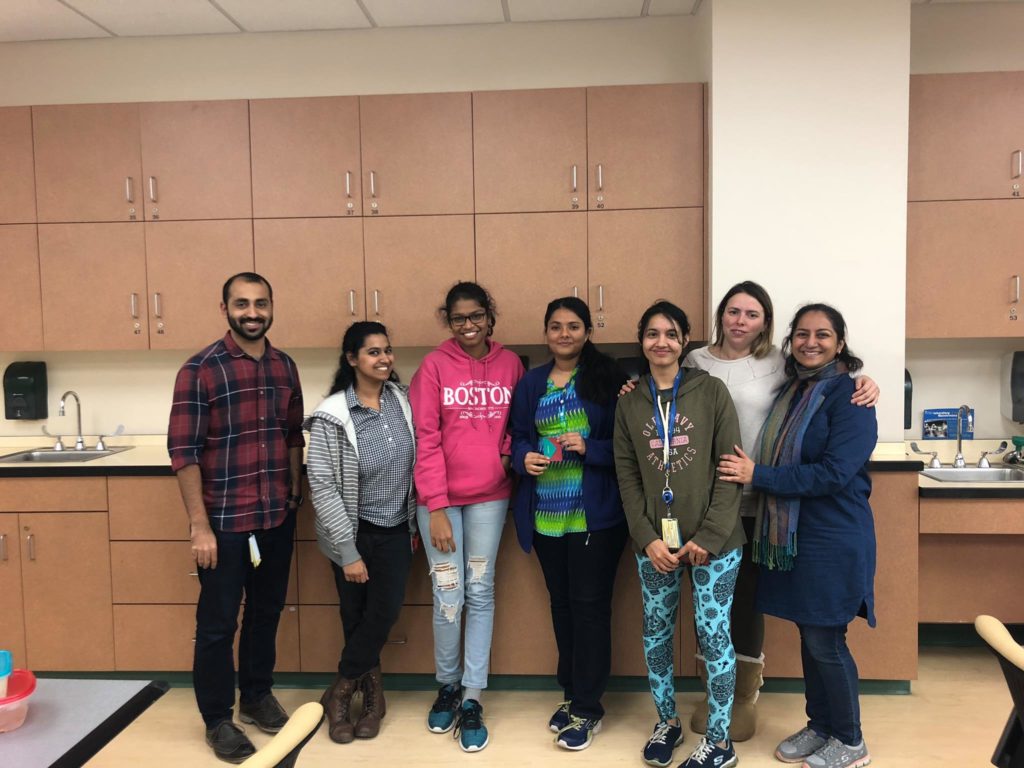
Besides research, Viswanathan is also involved with the Graduate Student International Club where she serves as vice president.
“We are hoping to have a lot of fun events for fall and spring,” she said.
She also likes to read fiction novels, thrillers and watch comedy movies.
 This article was written by Charlotte Anthony, marketing specialist at the Graduate School of Biomedical Sciences at UT Health San Antonio. This article is part of the “Meet The Researcher” series which showcases researchers at the Graduate School of Biomedical Sciences at University of Texas Health Science Center San Antonio.
This article was written by Charlotte Anthony, marketing specialist at the Graduate School of Biomedical Sciences at UT Health San Antonio. This article is part of the “Meet The Researcher” series which showcases researchers at the Graduate School of Biomedical Sciences at University of Texas Health Science Center San Antonio.
